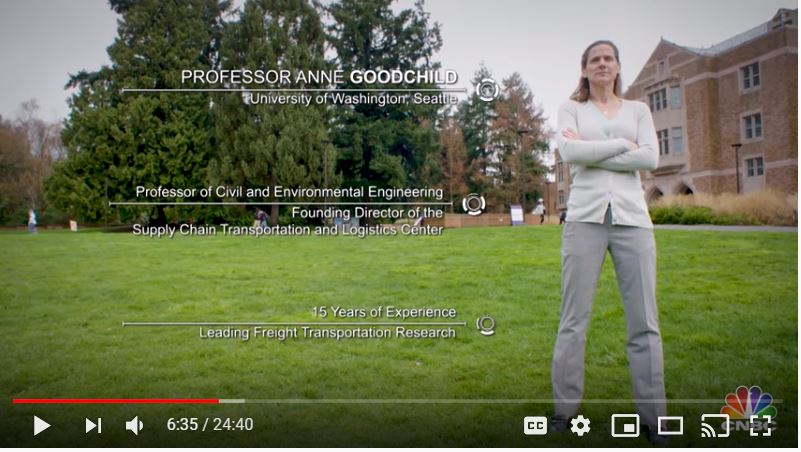
Fruit, televisions, barrels of oil. At some point during their journey from producer to consumer, all of these goods spend time on the open road, many of them in large trucks.
The environmental impact of heavy duty vehicles is significant. Trucks and buses are responsible for around 25 percent of carbon dioxide emissions from road transport in the European Union, according to the European Commission, and “some 6 percent” of total emissions in the EU.
One start-up wants to change the way that goods are delivered and lessen the freight industry’s impact. “In Europe, there’s 100 billion vehicle kilometers driven by freight vehicles,” David Jennison, U.K. managing director for OnTruck, told CNBC’s Sustainable Energy.
“One in four of these are totally empty, 54 percent of them are driven less than full,” he added. “So that means that about half the time the vehicle is not fully utilized and is not earning.”
Jennison said that the traditional way of booking a delivery was to manually pair carriers with shippers, with many hours wasted in the process. Few of these pairs, he added, were short and efficient, with carriers often required to go “well out of their way to actually pick up the load.” The end result was “many millions of empty kilometers and lots of wasted time and inefficiency in the booking process.”
In essence, OnTruck wants to create an on-demand logistics program, directly connecting drivers and suppliers. Its system looks to offer flexibility to shippers and truck drivers, which it calls carriers.
Using OnTruck’s platform, a shipper requests a shipment, with a notification sent to a carrier. Using a smartphone, the carrier can see all the details of the shipment — size, weight, vehicle specification and any other instructions. He or she can then choose whether or not to accept the trip.
Efforts to make the freight industry more environmentally-friendly take many forms, from platforms such as OnTruck to the way that vehicles are powered. Volvo Trucks, for example, recently unveiled a “fully electrically-powered truck” that can be used for urban distribution and refuse operations.
The Volvo FL Electric has a range of up to 300 kilometers and uses lithium ion batteries for energy storage. Sales and series production of the new model will begin in Europe from 2019.
Looking at the broader picture, the freight industry seems on the verge of a period of significant change. “We are at the edge of a revolution, there’s a wave of change that you can see hitting both passenger transport as well as freight, services like Uber and Lyft,” Anne Goodchild, founding director of the Supply Chain Transportation and Logistics Center at the University of Washington, told CNBC.
“We really are seeing the opportunity to do new and innovative things in transport.”
“I think a lot of that comes from our developments in sensors, in information systems and in communications. So for me, intelligent freight takes those tools and delivers a better freight system, one that is more efficient, one that is faster, one that is more nimble.”